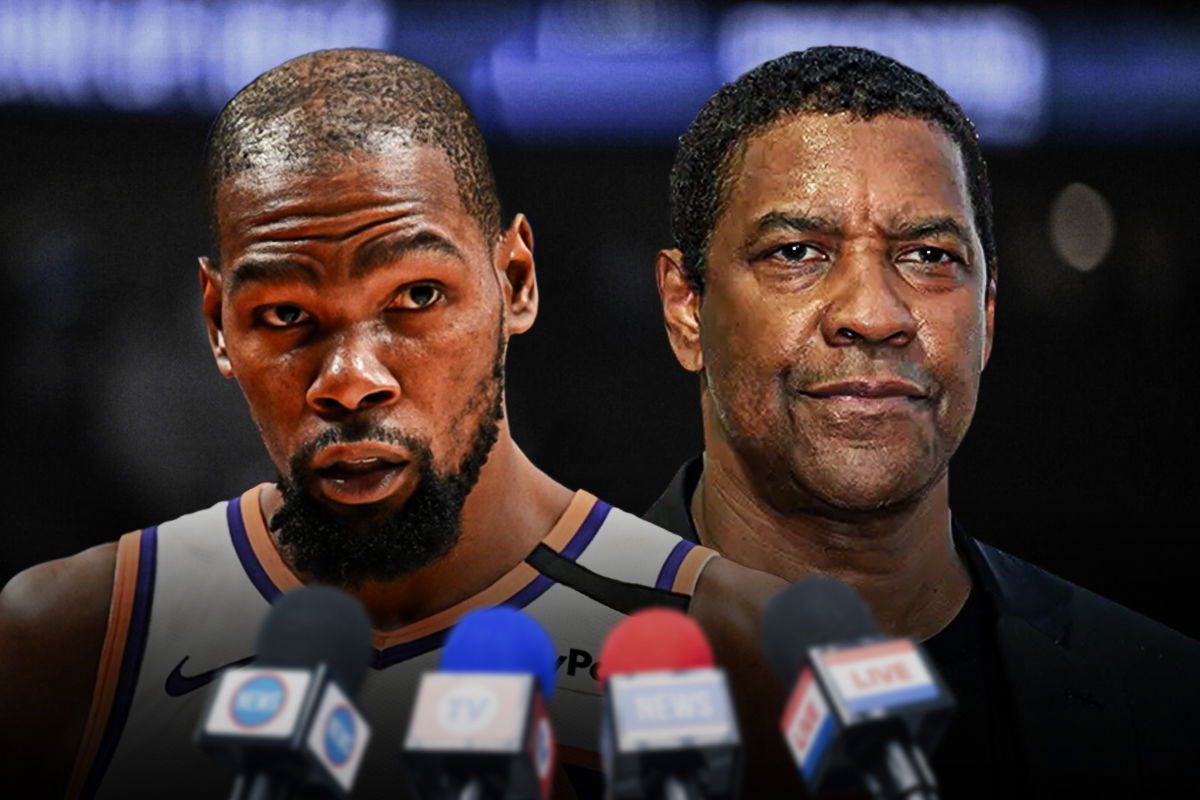

“Everybody’s got an opinion. In fact, we live in a world of ‘opinionaires.’”
Watch What’s Trending Now!
With that line, Denzel Washington dug into sports analysts, former players, and so-called critics alike — for their habit of dissecting athletes’ lives and games without ever carrying the burden themselves. But what sparked this rant? A simple question about the criticism Bronny James and Shedeur Sanders are dealing with. Two youngsters under heavy pressure. Bizarrely, most of the headlines aren’t even about what they can do, but rather striking a comparison with their dads.
But Washington didn’t stop his rant there. He doubled down: “Those who can’t do, those who can’t talk about those who can. Those who have know what they’re talking about. Those who haven’t… Don’t… Period.” The mic-drop moment immediately rippled across the sports world, and Kevin Durant was among the first to ‘co-sign’ this narrative. The Houston Rockets star stamped the message with three fire emojis on Instagram — a small gesture that spoke volumes.
ADVERTISEMENT
View this post on Instagram
For Denzel, the rant wasn’t just about two rising stars. It was a broader call-out of faceless media outlets and critics who build narratives while rarely holding accountability themselves. We really do not need to even name-drop here. So, Kevin Durant’s three emojis weren’t about hype; they were about solidarity.
ADVERTISEMENT
The Deeper Meaning Behind Kevin Durant’s ‘Three Fire Emojis’
There has been a long-standing tension between athletes and sports media, and Kevin Durant has been a prominent member of that club. Some may choose to directly call it a lifetime membership. Almost every NBA player is subjected to unwanted criticism and false opinions, but, unlike the others, Kevin Durant is not one to hold back with his responses.
Back in 2019, Kevin Durant, then with the Golden State Warriors, went off on the media’s coverage of his pending free-agency decision. When pressed about the endless rumor mill — including fresh chatter tying him to the Knicks — the Slim Reaper didn’t mince words. “You (media) rile up the fans about it. Let us play basketball. That’s all I’m saying. And now when I don’t wanna talk to y’all, it’s a problem with me. Come on, man. Grow up. Grow up. Yeah, you — grow up. Come on, bro. I come here and go to work every day. I don’t cause no problems.”
ADVERTISEMENT
That edge isn’t new.
Top Stories
Dennis Schroder Breaks Silence as NBA Announces 6-Figure Punishment Over Luka Doncic Incident
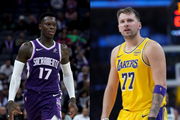
Unrivaled Starts to Resemble the WNBA for the Worst Possible Reason

Deni Avdija Injury: Blazers Star Exits to Locker Room in Final Minutes vs Knicks
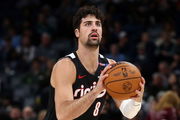
LeBron James Shares Evidence Against NBA Ref That Draymond Green Wants Fired

Steve Kerr Explains the Problem With Jonathan Kuminga After Tanking His Trade Value
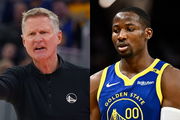
Durant has long taken aim at media figures who, in his view, distort the game for entertainment.
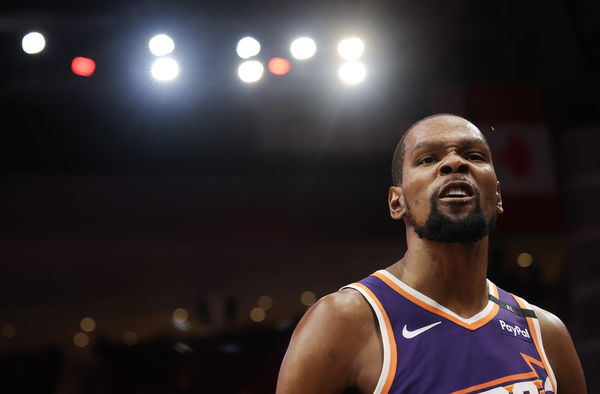
Imago
Feb 12, 2025; Houston, Texas, USA; Phoenix Suns forward Kevin Durant (35) reacts to call in the second half against the Houston Rockets at Toyota Center. Mandatory Credit: Thomas Shea-Imagn Images
He’s clapped back at Shannon Sharpe multiple times, once blasting him on X with “Y’all drunk uncle out here lying again…” after Sharpe took a jab at LeBron James. Even when Sharpe was feuding with Skip Bayless, an argument that took a ‘personal shot’ route, Durant couldn’t resist chiming in: “Toughen up Shannon.”
ADVERTISEMENT
Denzel Washington’s criticism that “Just ‘cuz you can sit behind a desk and chit chat doesn’t mean you can do a damn thing” is something Kevin Durant has used too. Back in 2024, NBA legend Charles Barkley took a shot at Durant’s capability to lead the Phoenix Suns, saying, “No disrespect to Kevin, Kevin’s a follower, he’s not a leader. He’s proven that on all his stops.”
While Barkley was a respected player in the 90s, he had been retired as a player for 24 years up until that point. Durant knew this, and used it to respond to the former player by saying, “I just feel like a lot of people that’s on TV, that don’t ever come to the gym; that don’t ever come to games; it’s hard for them to speak on what I do when they not in here…. I don’t respect your opinion if you’re not in the gym with me.”
ADVERTISEMENT
Kevin Durant has often been labeled as ‘thin-skinned’ for his online clapbacks and social media spats, but his triple-emoji response this time speaks to a bigger truth: public figures cannot be reduced to memes, hot takes, or armchair criticism. It was less about defensiveness and more about aligning with a growing athlete movement that challenges the psychological toll of being constantly dissected by outsiders.
Denzel is not a sports commentator, which makes his words all the more authentic and resonant. His status as an ‘old-school’ actor allows him to speak his mind without succumbing to public opinion. When once asked about Cancel Culture, he replied, “Who cares? Why was public support so crucial from the start?” So, anything he says, he says from the heart.
Moments like these remind us that sometimes it takes an ‘outsider’ to validate what athletes have been saying all along. Just as Dave Chappelle has questioned the culture of public shaming, or Jay-Z once reframed the role of entertainers by saying, “I’m not a businessman, I’m a business, man,” Washington’s critique is bigger than sports. For Durant, those three emojis likely meant: Finally, someone outside gets it.
ADVERTISEMENT
Hollywood or NBA, the Game’s the Same: Let the Work Do the Talking
Denzel Washington’s recent remarks do not mark the first time the 70-year-old actor has gone up against critics. After ‘Gladiator II’ got criticized for not following historical accuracy, Washington defended it by saying, “You eat popcorn while you’re watching it. It’s not a history lesson; tell them to go home, get a life. It’s not accurate, who cares?”
On the other hand, history shows that athletes don’t always defeat their critics by responding with words. Kobe Bryant, after being booed in the 2000 Finals, silenced doubters by winning three straight championships.
ADVERTISEMENT
Giannis Antetokounmpo, once mocked as “just a dunker,” answered with a 50-point masterpiece in the 2021 Finals that delivered Milwaukee its first title in 50 years.
An even more recent example of this dynamic came in 2022, when Stephen Curry silenced years of doubt by finally capturing his first Finals MVP. Despite analysts like Kendrick Perkins and others publicly dismissing the Warriors’ title chances at the season’s start, the Splash Bro delivered one of the greatest Finals performances of his career.
Basking in the title celebrations after Golden State’s victory, an emotional Steph let it all out with his now-iconic line: “What are they gonna say now?” letting his performance and symbolism crush punditry in one decisive stroke.
ADVERTISEMENT
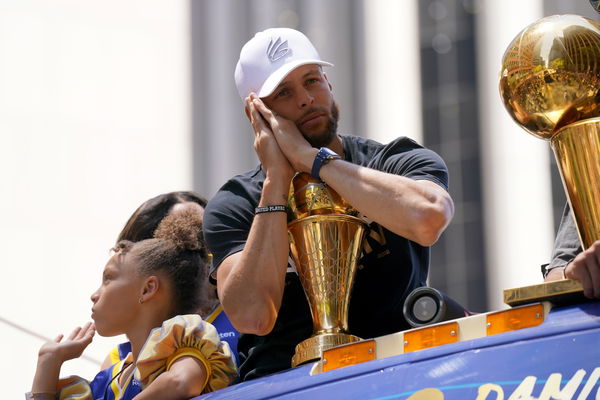
USA Today via Reuters
Jun 20, 2022; San Francisco, CA, USA; Golden State Warriors guard Stephen Curry poses with the NBA Finals Most Valuable Player Award trophy during the Warriors championship parade in downtown San Francisco. Mandatory Credit: Cary Edmondson-USA TODAY Sports
Kevin Durant’s wordless support for Denzel Washington echoes that same idea — let the court be the real microphone.
Today’s athletes are no longer reliant on traditional media to define their stories. From Draymond Green’s “New Media” crusade to Gilbert Arenas’ booming show, players have carved out platforms that bypass the gatekeepers, letting them speak unfiltered and on their own terms.
Athletes are no longer willing to let TV panels and anonymous headlines dictate their legacies.
For KD — one of the most scrutinized players of his era — co-signing Denzel’s rant felt like more than an agreement.
It was a reminder that the old model of media control is cracking, and the players are rewriting the playbook.
ADVERTISEMENT
ADVERTISEMENT
ADVERTISEMENT

